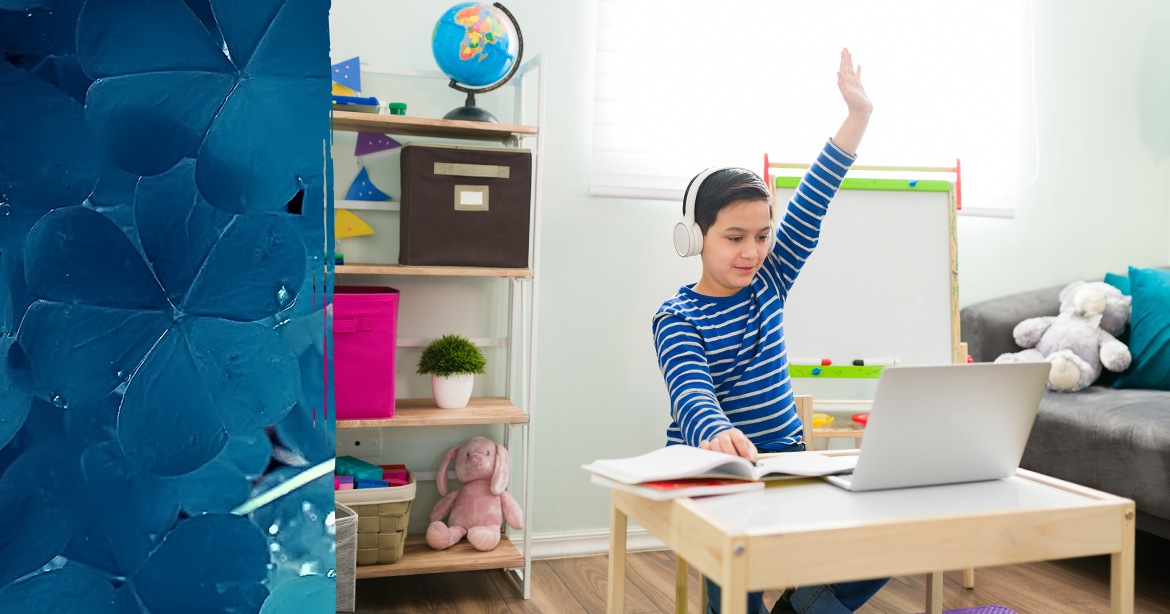Tips for Keeping Your Elementary School Student Focused

Many research studies have found that more student engagement leads to greater achievement, so keeping your student focused and engaged is essential. At MUSE Global School our teachers are experts at creating an engaging environment, but if you are a remote learning parent or want to help your child at home, we can share some tips for you.
Keep in mind that teaching children presents hundreds of choices (if not more) every day, and there’s an equal number of ways to keep your elementary school student focused. Finding the ideal way to prepare your student for learning success is possible, but figuring out what works best for your child can take time. If you don’t succeed at first, try again!
Accommodate for Children’s Short Attention Spans
Elementary school students, particularly younger ones, have fairly short attention spans. Studies have shown that kindergarteners (ages five and six) can focus on a task for only ten to thirty minutes!
Shorter educational activities and lessons will keep your elementary students engaged and keep their minds active and centered. In other words, this isn’t the time for hour-long lectures on the water cycle. Your child is almost guaranteed to become unfocused and tune out.
Provide Your Student With Multiple Guided Options for Learning
Like most people, students enjoy knowing they have choices and actively control their learning. Students are more focused and engaged when provided with options for learning the material. Seminar-style or small groups? Laptops or paper and pencil? Give students the ability to decide which topics they’d like to learn and which activities they’d like to complete and they will be more engaged.
The freedom of choice places students in the driver’s seat and allows them to decide their learning program and what direction their education will take. They may still need some guidance, so offer plenty of support and instructions during the decision-making process, and always be willing to lend a hand!
At MUSE, we believe in a student-centered approach that identifies students’ unique talents, interests, and environmental preferences within their personalized learning journey. Determining a student’s learning style is even more critical in a virtual learning setting. For our remote students, our learning doesn’t involve 100% screen time. We include a healthy mix of away-from-screen activities to keep students engaged and learning in the way that best suits them.
Have an Engaging Conversation With Your Student
When speaking with students, adults and educators should be aware of their tone, demeanor, and body language–and what messages these nonverbal signals might be conveying.
When presenting new information to students, try to speak with them instead of talking at them. In other words, engage in a conversation rather than monologuing to an audience. Ask plenty of open-ended questions, seek their opinions, and elicit their feedback on topics that are being discussed. As your students begin working on new projects, ask about their feelings or reflections, and be receptive if they gravitate towards speaking about more personal topics.
Our small class sizes at MUSE Global allow teachers to build wonderful online and live interactions with children. Rather than feeling lost in the crowd, students join a nurturing learning community that can grow and challenge their thinking. That’s even easier to do at home!
The Process Communication Model (PCM) taught at MUSE also helps students become better communicators. Developed by Dr. Taibi Kahler, the PCM empowers students by helping them observe and understand their own behavior, understand the behavior of others, and analyze conflict and miscommunication to help find a resolution and return to effective communication. If you are a current MUSE parent, join our free Parent Workshops to help build better communication at home, as well!
Bring Enthusiasm
Be enthusiastic and excited about the topic you’re discussing. If adults and educators are engaged in a lesson, students will respond to the modeled behavior and act accordingly.
Discover which topics or interests motivate your students, whether that’s Mario Kart, snorkeling, comic books, or competitive basket weaving. To increase engagement, have conversations with students about these subjects and connect conversations to topics covered in the curriculum. By aligning what students are legitimately excited about with what’s taught in school, you can maximize your children’s engagement in the classroom.
At MUSE, we do this by co-creating the educational experience with children through a student-centered academic program that integrates what they want to learn, including their hobbies and interests. Our students’ passions guide their journeys, building a contagious and lasting enthusiasm that defines their learning.
You Can Maximize Your Student’s Engagement Today
Students will respond to your strategies differently based on their unique inclinations and learning styles. That’s why we emphasize the importance of staying flexible to change. Remember that while keeping your elementary school child focused may seem challenging, it’s possible with the right strategies and tactics.
Every day at MUSE, we seek to cultivate and sustain that in-the-moment exhilaration in our students, hopefully for the rest of their lives. If you’re ready to learn more about our accredited, high-performing online program recognized as a global beacon of sustainable living, we encourage you to enroll your child today. Registration for Fall 2024 is now open!

